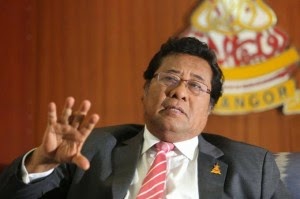Yet another jihadist gets the crazy idea that “when you meet the unbelievers, strike the necks” (Qur’an 47:4) means “when you meet the unbelievers, strike the necks.” Obviously only someone who knows nothing about Islam could make a mistake like that.
And she is a doctor to boot. Doesn’t Mujahidah bint Usama know that poverty causes terrorism?
“Jihadi DOCTOR stands with severed head in her hand as kids look on in horror,” by Sophie Alexander, Daily Star, September 8, 2014:
And she is a doctor to boot. Doesn’t Mujahidah bint Usama know that poverty causes terrorism?
“Jihadi DOCTOR stands with severed head in her hand as kids look on in horror,” by Sophie Alexander, Daily Star, September 8, 2014:
A BRITISH doctor and suspected jihadi holds aloft a severed head while two children look on in horror.
The sickening snap is posted on Mujahidah Bint Usama’s Twitter page and shows her wearing a white lab coat, veil and holding her arm outstretched, with what appears to be a decapitated head.
The photo is captioned “Dream Job.. A Terrorist Doc” which she has added a smiley face song and two hearts to.
On the description of herself she has a quote from Anwar al-Awlaki – a high profile terrorist for al-Qaida.
It reads: “Running away from Jihād will not save you from death. You can die as a coward or you can die as a martyr.”
The jihadi is just one of a frighteningly increasing number of British women who have travelled to Syria and Iraq to fight for the IS.
Many have been put in charge of stamping out “immoral” behaviour at the centre of the terror group.
They have joined the feared al-Khansaa brigade – an all female force intent on hunting down those who do not strictly follow sharia-law.
They brigade operates in Raqqa – the Syrian city where the IS set up its headquarters and close to where American hostages James Foley and Steven Sotloff are believed to have been executed.
A key figure in the al-Khanssaa brigade, according to researchers at the International Centre for the Study of Radicalisation (ICSR), based in King’s College in London, is Aqsa Mahmood, a 20-year-old woman from Glasgow who fled to Syria in November last year.
She rose to notoriety for praising the killers of drummer Lee Rigby and recently posted on social media: “If you cannot make it to the battlefield, then bring the battlefield to yourself.”
A group of four British women have used Twitter to express their interest in joining the unofficial sharia police force.
One of them – known only as Umm Farriss – arrived in Syria in February and posted a photo online of her suicide bomb.
Sixteen-year-old twins Salma and Zahra Halane are both thought to have married jihadists since fleeing their Manchester home in June.
Sally Jones, 45, ran away to wage jihad with her tomboy husband, Junaid Hussain, 20.
She is thought to have snuck into Syria at the end of last year after an online romance with computer-hacker Hussain.
Jones, recently tweeted a message saying: “You Christians all need beheading with a nice blunt knife and stuck on the railings at Raqqa. Come here. I’ll do it for you!”















 However, Mahathir did not let the opportunity slip to take a swipe at the Anwar-led Pakatan Rakyat.
However, Mahathir did not let the opportunity slip to take a swipe at the Anwar-led Pakatan Rakyat.




